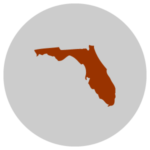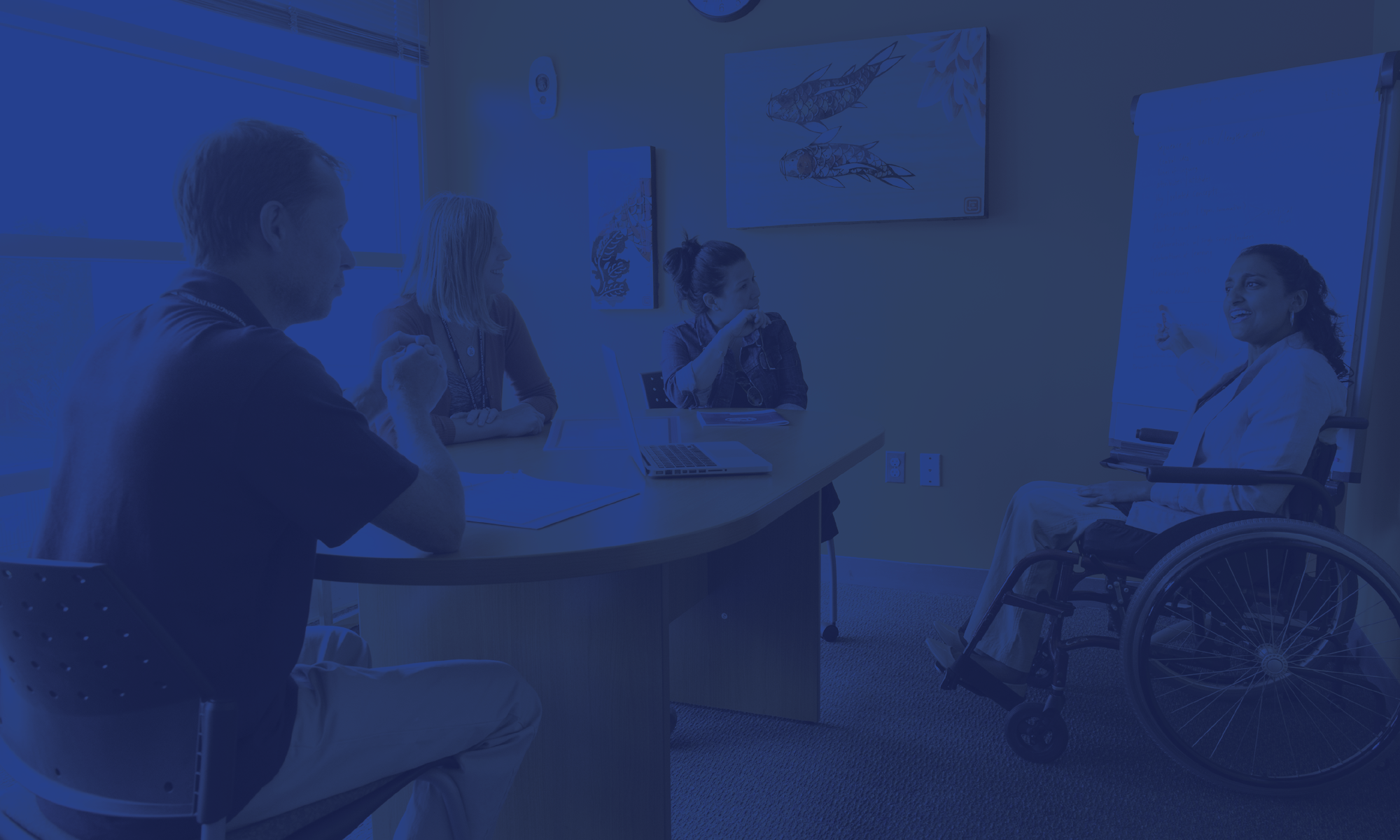YOUTH TRANSITION
(PREPARING FOR WORK)
Youth and young adults must develop marketable skills to get jobs and stay employed. This is particularly important for individuals with disabilities, who may experience unique challenges finding and maintaining work. Young adults may experience a number of challenges ranging from societal misconceptions and low expectations to inaccessible programs and services.
State Policies Relevant to YOUTH TRANSITION
(PREPARING FOR WORK)
Click on the map above to see the corresponding policies.
ALTERNATE VIEW OF State Policies Relevant to YOUTH TRANSITION
(PREPARING FOR WORK)
SF2415
Arkansas
HB221
Connecticut
HB 7168
Illinois
SB 534
Maine
SF2415
Nevada
AB 68
New Hampshire
HB 171
New Jersey
S 3066
New York
A 7251
Oklahoma
SB 601
Oregon
SB 13
Utah
HCR 14
Washington
HB 1139
Work-based learning provides practical, meaningful opportunities for youth to engage in self-exploration, career exploration and career planning and management. As such, states may want to consider promoting experiences that build career readiness and employability for all youth and young adults, including those with disabilities. Work-based learning connects classroom and applied learning to increase relevancy, leads to higher secondary education completion and postsecondary enrollment rates, engages students in career pathways and facilitates the development of technical and employability skills.
In addition, evidence has shown that family engagement is one of the the strongest predictors of success in school and transition to employment for youth and young adults. Families play pivotal roles in their children’s cognitive, social and emotional development from birth through adolescence and beyond. Families also play a key role in ensuring that youth develop the skills necessary to make informed decisions, which is closely tied to successful education and career outcomes for all young people. To be most effective, family engagement should be person-centered and involve close partnership with educators and human service professionals in close partnership for all youth and especially for youth with disabilities. Learn more in the Work Matters Framework.
Governors and state legislators are increasingly recognizing the role state government can play in preparing youth for further education and employment and engaging families in this effort. The report titled Work Matters identifies three policy recommendations to prepare youth and young adults with disabilities for the workforce. Lesson 6 covers the following topics:
1. CAREER READINESS
Today’s youth with disabilities have grown up in a world of increased opportunities and expectations under the Individuals with Disabilities Education Act (IDEA) and the Americans with Disabilities Act (ADA) and corresponding state laws. Despite opportunities provided through these federal and state laws, however, youth with disabilities are still less likely than their nondisabled peers to graduate from high school, enroll in college, graduate from college and enter the workforce.
Nearly all states have embraced college and career readiness or CCR as a primary goal for all high school students and adopted some form of CCR programming in their public school curriculum. Many states have also worked to make their college and career readiness programs more inclusive for students with disabilities.
Like earlier educational policy trends designed to promote greater integration of students with disabilities into general classrooms with their non-disabled peers, state CCR curricula can advance disability inclusion efforts by ensuring the accessibility of in-school programming, the opportunity to explore career paths in inclusive settings and the coordination and alignment of individual education programs or IEPs with CCR planning services. Learn more in the Work Matters Framework .
State policies related to career readiness:
-
-
- Promote comprehensive education and career development plans that capitalize on youths’ skills, abilities and career and academic goals
- Include youth with disabilities in a sustained, meaningful manner in the career readiness and development process, beginning at an early age
- Strengthen the capacity of education and career development professionals to design and implement evidence-based, inclusive programs and strategies
-
State policymakers can promote comprehensive education and career development plans that capitalize on youths’ skills, abilities, and career and academic goals. Upon graduation, these comprehensive plans should result in the conferring of meaningful credentials that provide youth access to and preparation for their post-secondary education or career goals.
Note: 44 states and the District of Columbia require or strongly encourage schools to implement Individualized Learning Plans or ILPs as a means of facilitating college and career readiness among youth with and without disabilities.
Suggested Strategies for all youth:
-
-
- Facilitate the inclusion of school and community learning opportunities in education and career development plans (e.g., IEPs, individualized learning plans or ILPs, etc.).
- Ensure a coordinated, person-centered approach in the development and implementation of education and career development plans. This may include alignment of any IEPs, ILPs, etc., developed for youth with disabilities.
- Encourage the development and implementation of state legislation that precludes or limits the awarding of certificates of completion in order to ensure youth are graduating with meaningful credentials that are recognized by potential employers or institutions of higher education.
- Facilitate the implementation and adoption of inclusive design concepts for education and career development-related services and systems to ensure they are accessible to all youth. In addition, encourage the provision of appropriate supports and accommodations for youth with disabilities where necessary to ensure inclusion to the fullest extent possible.
-
State policymakers also may want to consider specific sustained and meaningful career readiness and development strategies targeted at youth with disabilities, beginning at an early age.
Suggested Strategies for youth with disabilities:
-
-
- Afford youth and young adults with disabilities opportunities to identify their strengths, explore interests and engage in valuable learning experiences prior to entering the workforce. People with disabilities are often sheltered from risk and not afforded the opportunity to explore career development opportunities and learning experiences.
- Allow for continuity of services past the age of majority, which may include the provision of needed accommodations and supports.
- Initiate the career readiness process at the start of formal education (i.e., kindergarten) to expose youth to learning opportunities at an early age and empower them to make informed career development choices tied to course selection and transition planning efforts.
Note: Whether states mandate the use of education and career development plans or encourage their use as a promising practice, there is a clear trend for launching the effort no later than the middle school level.
-
-
-
- Begin the transition planning process for youth with disabilities at the earliest stages of education, ideally aligned with the age or grade level at which the student begins the career readiness and development process.
Note: Under IDEA, transition planning currently is required to begin no later than age 16.
- Begin the transition planning process for youth with disabilities at the earliest stages of education, ideally aligned with the age or grade level at which the student begins the career readiness and development process.
-
State policymakers may also want to consider strengthening the capacity of education and career development professionals to design and implement evidence-based, inclusive programs and strategies. Suggested strategies include providing statewide professional development opportunities related to family engagement and person-centered career planning for professionals serving youth.
Alignment of IEPs and Career Development Plans
Kentucky and Rhode Island offer the most specific language regarding the ILP and transition plan within the IEP. Both include language indicating that the transition plan within the IEP should be “aligned” with the ILP, meaning the ILP career development process is an activity that complements and guides the development of the transition-focused IEP. Learn more in the Work Matters Framework.

Kentucky, through Section 7 of 707 Kentucky Administrative Rule (KAR) 1:320, requires the transition planning process of the IEP to begin in the eighth grade or when the student reaches the age of 14. The administrative rule requires that, “…in alignment with the child’s ILP (as required by 704 KAR 3:305), or earlier if determined appropriate by the Admissions and Release Committee or ARC, the IEP for a child with a disability shall include a statement of the transition service needs of the child under the applicable components of the child’s IEP that focus on the child’s course of study.” The transition services plan resulting from this IEP and ILP alignment must be reviewed and updated annually.

Rhode Island provides that the ILP must coordinate with IEPs, 504s, PLPs and ELL programs. “The ILP supports changes in instructional placements and key transitions including middle level to high school, high school to post-secondary placement, and transfer across schools and districts.”
Coordinated, Person-Centered Career Readiness Approaches
Kentucky, Oregon and South Carolina, amongst others, have developed policies or programs on coordinated in-person centered career readiness. Colorado, Connecticut and Minnesota have developed “toolkits” and/or comprehensive guidance for career development. Learn more in the Work Matters Framework.

For example, Oregon focuses on a person-centered planning model that is embedded throughout public education, workforce and social services systems. As part of its Secondary Transition planning manual, Oregon includes person-centered planning guidance and resources to teachers.

In 2005, the South Carolina General Assembly passed the Education and Economic Development Act, requiring all public school districts to develop a curriculum that is organized around personal pathways to success for all students. The state developed the law to provide students with strong academic and real-world problem-solving skills. Schools are required to organize curricula around a minimum of three career clusters and establish individual graduation plans for all students. Career readiness efforts are built into every phase of the student’s education, with career awareness and exploration activities in grades one through five, career cluster selection and graduation plan development in grades six through eight and career counseling and declaration of academic focus in high school.
Include youth with disabilities in a sustained, meaningful manner in the career readiness and development process, beginning at an early age.
Arizona, Colorado, Connecticut, Delaware and Wisconsin have all taken steps to ensure that students with disabilities are included in the state’s career readiness programming. Further, Colorado, Delaware, Kentucky and Wisconsin have statutory or regulatory language allowing transition planning efforts to begin earlier than age 16 (the maximum age under the IDEA). Learn more in the Work Matters Framework.

Arizona Department of Education Board Rule R7-2-302.05 requires schools to develop and annually review an Education and Career Action Plan or ECAP for all students grades 9-12. This ECAP requirement includes students with disabilities, and the Arizona Department of Education has published an ECAP and IEP crosswalk document providing guidance to teachers, parents and students on how to effectively coordinate career readiness and special education planning activities.

Colorado’s Board of Education promulgates and updates rules on Individual Career and Academic Plan (ICAP) requirements as required in Senate Bill 256, which was passed in 2009. The Colorado Department of Education has clearly communicated that ICAPs are required for all students in grades 9-12, including students receiving special education services.

Wisconsin, through Department of Public Instruction administrative rule Chapter 26, provides that, “If a pupil is a child with a disability, the pupil’s academic and career plan shall be made available to the pupil’s individual education program team. The pupil’s individualized education program team may, if appropriate, take the pupil’s academic and career plan into account when developing the pupil’s transition services.”
Strengthen the capacity of education and career development professionals to design and implement evidence-based, inclusive programs and strategies
In Arizona, the Department of Education’s Secondary Transition team provides in-person trainings to educators, parents, students and other relevant individuals on various components of the IEP process and its relationship to college and career readiness efforts, including how to fully utilize the ECAP and the Arizona Career Information System or AzCIS.
Alaska and Illinois have statewide initiatives to train educators in family engagement. Further, Arkansas, California, Colorado, Massachusetts, Oklahoma and Utah have passed legislation to strengthen capacity of inclusive programs and strategies.
Learn more in the Work Matters Framework.

In 2017, California enacted AB1111, the Breaking Barriers to Employment Initiative, to be administered by the California Workforce Development Board, and created a grant program to provide individuals who experience barriers to employment the services needed to enter, participate in, and complete workforce preparation, training and education programs.
In 2018, California enacted AB2915, which supports the use of career pathways to provide education, workforce investment and employment support services for low-skilled adults, youth, people with disabilities and other individuals who experience barriers to employment.

In 2018, Colorado enacted SB231, which establishes a task force to make recommendations to improve the process for individuals with disabilities who are transitioning from receiving services and supports in an educational setting to receiving services and supports through home- and community-based services. The legislation also defines its purpose to be “ensuring that children with disabilities have a free and appropriate public education to prepare them for further education, employment, and independent living.”

In 2017, Utah enacted HB240, which describes the components of a results-based education, employability training and workforce placement program — a pay-for-success program that helps adults earn a high school diploma and obtain a full-time job with benefits in a career path through integrated employability skills development.
2. WORK-BASED LEARNING EXPERIENCES, INCLUDING APPRENTICESHIPS
States can facilitate skill development and job exploration opportunities, like work-based learning, that align with education and career development planning and meet businesses’ predicted workforce needs. Learn more in the Work Matters Framework.
Work-based learning is an essential component of career development, which should be implemented in a quality manner to produce college- and career-ready graduates. The Workforce Innovation and Opportunity Act (WIOA) recognizes the importance of work-based learning as a strategy to improve employment outcomes for all disconnected youth. At least 20% of local youth formula funding must be spent on work-based experiences. Apprenticeship programs, including registered apprenticeship programs, allow individuals to earn money and learn through technical instruction and hands-on training.
Unfortunately, youth with disabilities, particularly those with significant disabilities, currently have less access to work-based learning, even though paid employment and work experiences have been identified as one of four evidence-based predictors of success in postsecondary education, employment and independent living for youth with disabilities.
State policymakers should ensure their efforts to promote work-based learning, including apprenticeship programs, include youth with disabilities. By offering work-based learning opportunities like service learning, internships and job shadowing with employers who are knowledgeable about disability and capable of designing experiences for and accommodating a student’s individual needs, state college and career readiness programming can help prepare students with disabilities for the competitive workplace. Also, policymakers should incorporate work-based experiences into all phases of the education and career development process so that youth and young adults have opportunities to make informed career-related decisions. Work-based learning should involve a range of experiences — from site visits and job shadowing to apprenticeship programs to paid and unpaid internships and service learning—and be available in both in-school and out-of-school settings.
Suggested Strategies:
-
-
- Expand the availability of inclusive work-based learning experiences where eligibility is not contingent on enrollment or participation in an educational program or institution.
- Expand the availability of inclusive apprenticeship programs.
- Facilitate collaboration between state and local educational agencies, workforce development and vocational rehabilitation agencies to provide a wide range of integrated work-based learning experiences for youth with disabilities, including paid internships, and leverage funding to pay for training and learning experiences or to reimburse businesses for associated costs.
- Foster the establishment of business-led advisory groups to guide development of inclusive work-based learning experiences that are attractive to both businesses and youth/young adults.
- Provide incentives for business intermediaries to offer guidance (i.e., technical assistance) related to the ADA, Fair Labor Standards Act (FLSA) and other laws, to businesses participating in work-based learning experiences.
- Support public-private partnerships that facilitate employer recruitment and student placement in meaningful, work-based learning opportunities.
-
California, Illinois, Indiana, Kentucky, Massachusetts, Pennsylvania, South Carolina, Wisconsin, Florida, Nevada Texas and Missouri have all implemented career pathways programs which promote some type of work-based learning experience.

Indiana’s Office of Work-Based Learning and Apprenticeship, located within the Department of Workforce Development, is part of Gov. Holcomb’s Next Level Agenda. This office develops and implements a framework of various work-based learning pathways both for youth and adult populations. To accomplish this, the office concentrates on three objectives:
-
-
- Coordinate efforts and partner with the U.S. Department of Labor to expand registered apprenticeships.
- Develop flexible and scalable programs that focus on the state’s key economic sectors and regional high-wage, high-demand occupations.
- Build public-private partnerships to increase business and industry engagement with education systems. The Indiana Department of Education, in conjunction with the Department of Workforce Development, has also developed a work-based learning manual.
-

In the early 1990s, Wisconsin implemented a youth apprenticeship program that is now the largest apprenticeship opportunity for high school students in the United States. The program consists of two years during which juniors and seniors participate in work-based learning and related coursework, often for college credit.

In 2019, Governor Ron DeSantis of Florida issued Executive Order No. 19-31, which directs the Department of Education to develop best practices for partnerships between high schools, postsecondary institutions and businesses. The order also identifies legislative priorities including seeding high quality workforce apprenticeships and other industry specific learning opportunities for students.

In 2019, Governor Michael Parson of Missouri issued Executive Order 19-20, which creates the Office of Apprenticeship and Work-Based Learning. The primary objective of the office is to significantly increase the number of participants in apprenticeships, including federally registered, certified non-registered apprenticeships, earn-and-learn and pre-apprenticeships, as well as other quality work-based learning experiences.

In 2019, the Texas Workforce Commission piloted a new program called Explore Apprenticeship which was aimed at assisting vocational rehabilitation students to learn about and experience careers that can be entered through the apprenticeship training model. The program took place at two community college districts and was designed to build the knowledge of apprenticeship career pathways for students with disabilities and is focused on awareness through interactive and project-based learning coupled with site visits.
Apprenticeship Resources by CSG:
-
-
- The Future of the Workforce
- Work Matters
- Utilizing Public Sector Apprenticeships to Improve Employment Outcomes
- Inclusive Apprenticeships: How States are Supporting Skills Training for People with Disabilities
- Kentucky Paves the Way for Public Sector Apprenticeships
- Industry-Led Apprenticeships Emerging as a Pathway to Employment
- National Apprenticeship Week
- Building Resilience: How Inclusive Apprenticeship Programs Are Responding to COVID-19
- Building Inclusive Apprenticeships: Upcoming Webinars Discuss Design and Funding Strategies
- CSG’s Public Sector Apprenticeship Consortium
- CSG’s Public Sector Apprenticeship Program Application
-
3. FAMILY ENGAGEMENT
States should consider promoting meaningful family engagement throughout the education and career development process for youth and young adults, including those with disabilities. Strategies to consider include:
-
-
- Encouraging the development and adoption of comprehensive training for parents and families that provides them with the knowledge to support youth with disabilities in navigating the education and career development process
- Affording families opportunities to serve as advisers in the design of career and workforce development programs and strategies
- Engaging families in education and career development planning to increase their capacity to better assist youth in navigating the career development process and to maximize learning opportunities
-
Many states are implementing family engagement initiatives. Family engagement can increase motivation, reduce behavioral problems and improve social-emotional adjustment. All students benefit from family engagement, but it can be an especially crucial part of ensuring that students with disabilities are receiving access to the same opportunities as their nondisabled peers.
Improving family engagement in the career development process also raises families’ awareness of students’ postsecondary goals, enabling families to support their students’ career and life goals more effectively, identify critical college and career planning and management skills and evaluate postsecondary training and education options for their children.
While evidence suggests that parents of a student with a disability are as likely to be engaged in school activities and more likely to provide homework support than parents of a student without a disability, many families of a student with a disability report expectations for employment and educational achievement far below average work and graduation outcomes for the disability population. Learn more in the Work Matters Framework.
State policymakers can look to harness high expectations and robust family engagement to cultivate parents who are well-informed and well-prepared advocates for their child’s future educational and career success. These capacity-building activities can include promoting greater involvement in the IEP and career exploration and workforce development planning process, providing extensive training and technical assistance to parents on career and college readiness skills and navigating workforce and higher education systems.
Suggested Strategies:
-
-
- Use data to encourage on-time high school completion, encourage parental advocacy to facilitate student success and provide coursework strategies that promote pathways to college or career readiness.
- Develop materials for individuals, families and guardians that are free of jargon, easy to understand, culturally sensitive and not overly reliant on technology that may not be available to all.
-
Minnesota, Nevada, Utah, Alaska, California, and Illinois, Connecticut and Washington, among other states, provide training for families or educators to assist students, including those with disabilities, in their transition from high school. States with family engagement frameworks include Alaska, California, and Illinois. States that provide training and have developed materials for families and guardians in family engagement include Alaska, Illinois, Kentucky, Pennsylvania and South Carolina.

For example, Connecticut enacted a Transition Bill of Rights for parents of students receiving special education developed by the Connecticut State Department of Education (CSDE). The bill of rights provides, among other things, that students have the right to actively participate in the development and revision of their Student Success Plans, which are required for all students in grades 6–12 to address career, academic, and social/emotional/ behavioral skills to prepare for life after high school. Along with their parents, guardians, and surrogate parents, they also have the right to receive transition resources and other information regarding IEPs developed by the Connecticut State Department of Education(CSDE) and their school.

Nevada SB 474 provides training for teachers and paraprofessionals on working with parent liaisons in public schools to carry out strategies and practices for effective parental involvement and family engagement.

Washington enacted HB2394, which expands the parent-to-parent program statewide for children’s special health care needs. The goals of the program are to:
-
-
- Provide outreach, support, and education to parents who have a children with special health care needs
- Match a trained volunteer support parent with a new parent who has a child with similar needs
- Provide parents with the tools and resources to be successful as they learn to understand the support and advocacy needs of their children
-
Additionally, a number of states, including Colorado, Delaware, Florida, Maryland, Minnesota and Washington, have enacted legislation creating inclusive higher education programs for people with intellectual and developmental disabilities who do not meet eligibility criteria to attend an institution of higher education. These programs offer a postsecondary education experience and work-based learning opportunities that lead to competitive integrated employment.
The Center for Advancing Policy on Employment for Youth (CAPE-Youth) is a federally-funded collaboration between the U.S. Department of Labor’s Office of Disability Employment Policy, The Council of State Governments, and the Yang-Tan Institute on Employment and Disability at Cornell University. The Center works to improve employment outcomes for youth and young adults with disabilities by helping states build capacity in their youth service delivery and workforce system.
CAPE-Youth’s website provides information and resources on a range of transition-related topics. These resources include:
-
-
- Database of state policies that support youth with disabilities in their transitions
- Database of programs in each state that support youth with disabilities in their transitions
- Brief on “Expanding Apprenticeships as a Career Pathway for Youth and Young Adults with Disabilities”
- Brief on “Promoting and Maintaining Career and Technical Education for Students with Disabilities: State Strategies Developed During the COVID-19 Pandemic”
- Information on career preparation for youth and young adults with disabilities
- Information on enhancing professional development for youth-serving providers
- Information on inclusive apprenticeships
-
Top of Page
< Previous Section
